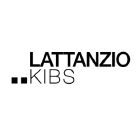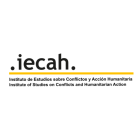WORKING WITH DG ECHO AS AN NGO PARTNER | 2021 - 2027
MODEL GRANT AGREEMENT
General - MGA
The MGA is a corporate template adopted at the European Commission level and must be used by all its services and executive agencies that award EU grants. It ensures that all beneficiaries of EU grants are subject to the same contractual rules.
Guidance on the MGA is provided in the Annotated Grant Agreement (AGA), which is published by the European Commission and applies across all Directorates-General and EU programmes. Annex 5 of the AGA contains provisions specific to each Directorate-General or EU programme— in this case, the specificities of DG ECHO (HUMA).
The AGA is available in the Reference Document section of this website.
Annex 2 refers to the estimated budget, which must be submitted at the proposal stage. Annex 4 is the financial statement model, which must be completed and submitted at the final reporting stage, together with the general ledger. Both Annexes use the same cost category structure, ensuring consistency between the planned and reported expenditures.
Annex 5 to the MGA sets out DG ECHO-specific rules related to intellectual property rights, background and results, access and usage rights, communication, dissemination and visibility, as well as provisions specific to the implementation of humanitarian actions. It includes, for example, rules on cash transfers, asset transfers, and the possibility to request alternative arrangements for certain provisions of the grant agreement.
The Commission signs the Model Grant Agreement (MGA) using a Qualified Electronic Signature (QES). Partners may choose to sign either with a QES or by handwritten signature. Simple and advanced electronic signatures are not accepted.
If the MGA is signed by hand, a hard copy must be sent to DG ECHO by courier. If signed with a QES, the signed agreement should be sent by e-mail.
Detailed instructions on the signing process are provided in the cover letter accompanying the agreement.
It is not necessary to initial each page of the MGA.
The legal entity data of beneficiaries (legal name, address, legal representatives…) are filled-in in the Preamble of the MGA with the data stored in DG ECHO’s database (APPEL) since DG ECHO has not onboarded e-Grants yet (Funding & Tenders Portal).
The Model Grant Agreement (MGA) is DG ECHO’s standard contractual template for awarding grants under direct management. DG ECHO signs an MGA with its certified NGO partners and recognised Member States’ Specialised Agencies (MSSAs).
In cases of indirect management, DG ECHO signs a Humanitarian Aid Contribution Agreement (HACA) with its partner International Organisations (e.g. UN agencies, IFRC, ICRC, and some recognised MSSAs).
However, it is possible for an International Organisation to be a co-beneficiary under an MGA in specific cases (see FAQ 29).
Implementing Partners
All Implementing Partners involved in the action must be comprehensively listed in Chapter 10.6 of the e-Single Form.
No, there is no fixed maximum percentage, as long as the Implementing Partners (IPs) contribute directly to the implementation of the Action.
There is no limitation on the amount transferred between certified partners and Implementing Partners. However, certified partners remain fully responsible for the implementation of the entire Action and must perform core tasks. All fund transfers must be directly linked to the implementation of the Action.
Multi-Beneficiary Grants (Consortium & Co-beneficiaries)
All DG ECHO Partners participating in the Action must be included in the e-Single Form (e-SF) as co-beneficiaries, under the label ‘co-partner’. This includes:
- Certified humanitarian non-governmental organisations (EU Humanitarian Partners, Niche Partners, potential Programmatic Partners)
- Recognised Member States’ Specialised Agencies, and
- Pillar-assessed international organisations.
When completing Chapter 10.6 of the e-SF, the Coordinator must select the co-beneficiary(ies) from the drop-down menu. For more details, refer to the e-Single Form Guidelines available under ‘Reference documents’.
Local NGOs and, more generally, entities that are not DG ECHO Partners (see list) cannot be co-beneficiaries under the MGA but may participate as implementing partners.
The exchange rate rules set out in Article 21.3 of the MGA must be applied. However, Partners may use their own accounting practices to convert from their local currency to their accounting system. The key requirement is that the correct exchange rate is used when reporting to DG ECHO.
Yes. Partners can provide information on their own VAT status as well as that of co-beneficiaries in the dedicated section of the Single Form, specifically Section 13.8.1 – Details on VAT exemption.
Yes. According to Article 40.2 of the MGA, the Coordinator may request the addition of new beneficiary(ies) in justified cases. A modification request must be submitted to DG ECHO, and the Accession Form (Annex III to the MGA, available under ‘Reference Documents’), signed by the new beneficiary, must be sent to DG ECHO following the procedures described in the document.
Termination of beneficiary(ies) is also possible, in accordance with the procedures and conditions set out in Articles 32.2 (consortium-requested termination) and 32.3 (EU-initiated termination) of the MGA.
According to Article 7 of the MGA, co-beneficiaries are jointly responsible for the technical implementation of the Action. If one beneficiary fails to implement their part, the other beneficiaries must ensure that this part is carried out by someone else—without entitlement to an increase of the maximum grant amount and subject to an amendment (see Article 39 of the MGA).
The consortium may also request the termination of one or more beneficiaries’ participating in the Action (see Article 32.2 of the MGA).
Regarding financial responsibility, each beneficiary’s liability for recoveries is governed by Article 22 of the MGA. The general liability regime is as follows: at final payment, the Coordinator is fully liable for recoveries, even if they were not the final recipient of the undue amounts. After beneficiary termination or final payment, recoveries will be made directly against the beneficiaries concerned.
The change is not automatic and will be assessed on a case-by-case basis, depending on when the certification occurs during the project’s lifetime.
Amendments can have retroactive effect, but the coordinator should not implement any changes without the Commission’s agreement.
In a consortium where NGOs hold different types of EU Humanitarian Certificates (e.g., EU Humanitarian Partnership Certificate, EU Humanitarian Programmatic Partnership Certificate, EU Humanitarian Niche Partnership Certificate), all co-beneficiaries are treated equally. However, each NGO Partner is expected to participate in the Action within the scope of their specific Certificate.
The co-beneficiaries decide among themselves how to allocate the action’s budget, including support costs.
A multi-beneficiary (or multi-partner) grant agreement is a grant agreement with several DG ECHO Certified NGO partners, International Organisations, and/or Member States’ Specialised Agencies recognized by DG ECHO. Together these entities form a consortium.
Only the Coordinator (i.e. the lead partner submitting the proposal) signs the grant agreement. In accordance with Article 40.1 of the MGA, the other beneficiaries must sign and date a pre-filled Accession Form (Annex III to the MGA), which is provided to them by the Coordinator together with the grant agreement. This Accession Form must be signed within 30 days of the grant agreement’s entry into force.
The Coordinator collects all the signed Accession Forms and submits them to DG ECHO. Please note that all accession forms must be submitted at the same time, in the same format. They must either be signed using a qualified electronic signature (QES) and sent by email, or hand-signed and sent by courier. Detailed instructions are provided in the cover letter accompanying the grant agreement.
Yes. DG ECHO will first send a pre-information letter to the beneficiary concerned. If no observations are submitted within 30 days of notification, DG ECHO will confirm the amount to be recovered and issue a debit note.
No, the Coordinator will not be informed of the recovery, as the debit note and recovery apply directly to the concerned beneficiary, not the Coordinator.
While only the Coordinator has access to the draft or submitted proposal in APPEL, all beneficiaries have individual access to APPEL and are responsible for keeping their own Organisation’s information up to date (e.g. legal address, contact details, etc.), in line with their obligations under Article 7.a.1 of the MGA.




